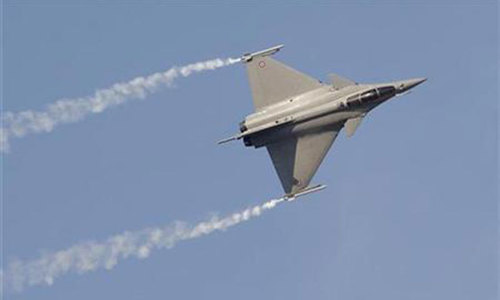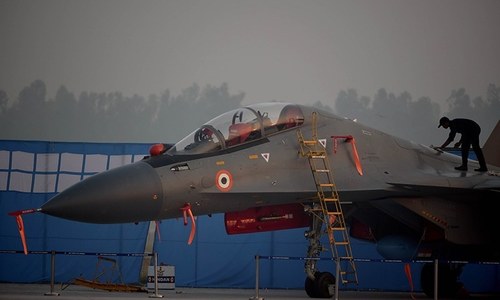Indian Air Force pilots popping pills to 'heighten alertness'

NEW DELHI: Indian Air Force (IAF) pilots are increasingly using drugs to heighten alertness and cognitive abilities to optimise performance in combat exercises, Times of India reported.
Modafinil and Zolpidem, nicknamed ‘Go/No-Go’ pills respectively, are used to first increase adrenaline and wakefulness, then counteract with sedation for recovery until the next mission.
The drugs were used across the IAF in Exercise Livewire, a military exercise which simulated a two-front war held from October 31 to November 8 in which all 54 IAF airbases were activated.
"It was a high-tempo exercise to simulate a war, which requires high adrenaline levels and the ability to push the envelope,” said a senior IAF officer.
Read: Indian Air Force faces risk as Pakistan, China modernise: report
Handling highly stressful situations becomes more difficult when sleep-deprivation and fatigue come into play, and can negatively affect decision-making ability. After the adrenaline-rush of the Go Pill, the No-Go Pill is used to offset its effect in order to rest before the next mission.
Although the rise of drug use raises concerns about potential for addiction, the IAF is firm that their use is regulated.
According to the senior IAF officer, “The Go/No-Go pills are being used to optimise performance only after extensive clinical trials, both in simulators and actual flying, with all necessary safeguards. For another, side-effects of both the pills during trials were negligible and did not appear to be a cause for concern.”
"The field trials and studies were conducted by our doctors to validate pharmacological strategies for sleep and alertness management for aircrews in extended operations. It was established both Modafinil and Zolpidem would help to optimise our personnel's performance in a sustained operational scenario," he said.
Using performance enhancing drugs in the armed forces is not new. Amphetamines and other stimulants, along with sedative and sleeping aids, are widely used in modern armies since at least World War II.













































